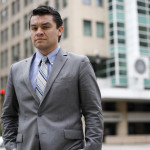
Photo: www.cand.uscourts.gov
San Francisco’s money bail schedule deprives plaintiffs of their rights, a judge ruled while overturning the law, possibly creating an opening for additional challenges.
Findlaw.com reports that U.S. District Judge Yvonne Gonzalez Rogers ruled that the sheriff’s use of the bail schedule “has significantly deprived plaintiffs of their fundamental right to liberty by sole reason of their indigence.”
The concept of bail, Findlaw.com notes, “means that thousands of potentially innocent people are stuck in jail — often for minor offenses — simply because they can’t afford bail.”
One of the plaintiffs in the case decided by Judge Rogers lost her job while in custody, only to have the charges against her dropped.
The ruling is not an isolated rejection of money bail, the site notes. “Cities, states, courts, and the Department of Justice have come out against pre-trial money,” the site reports.







